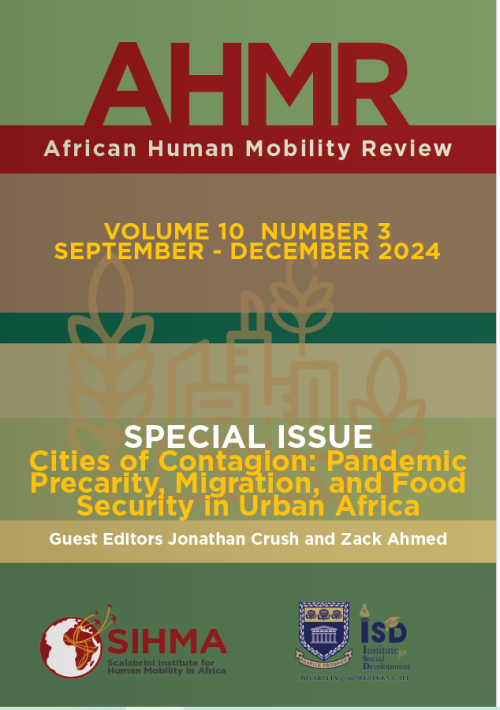Main Article Content
Informal Cross-Border Traders and Food Trade during the Global Pandemic in Zimbabwe
Abstract
The collapse of Zimbabwe’s economy in the 2000s resulted in the country relying largely on food imports from other countries, especially from South Africa. Informal crossborder traders (ICBTs) have become crucial players in the country’s food economy,
playing an important role in the importation of food as well as its retail across the country. Cross-border trading also provides employment opportunities to a large number of people in the country, especially women, in an environment of depressed
economic opportunities. The paper relies on data from a variety of sources, including surveys by the Southern African Migration Programme (SAMP) as well as document analysis to demonstrate the role played by ICBTs in the country’s food economy. It
also assesses how ICBTs were affected by the COVID-19 pandemic and examines their strategies employed to continue their business activities during the time of mobility restrictions. More importantly, it demonstrates how the lack of understanding of the contribution of ICBTs to employment generation and urban food security has led to the adoption of policies and practices that do not accommodate informal food trading in the country’s urban landscape. The paper also discusses how informal cross-border trading (ICBT) and informal food trading in Zimbabwe have changed in the post- COVID-19 period and sets a research agenda on understanding the role of ICBT in the economies of countries in the Global South.







